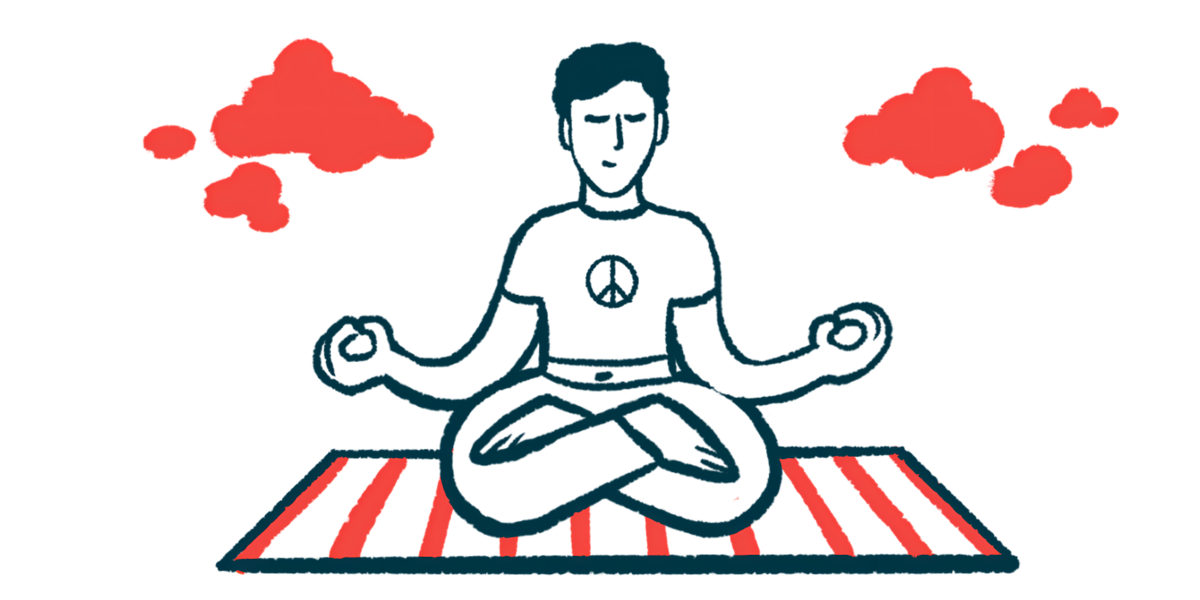Wim Hof method shows significant benefits for MS patients: Study
Holistic 12-week program combines cold exposure, breathing, mindfulness
Written by |

A 12-week program based on the Wim Hof method (WHM) — which combines cold exposure, breathing exercises, and mindfulness — was found to significantly ease cognitive fatigue, anxiety, and depression, as well as certain cognitive difficulties, in people with multiple sclerosis (MS) in a pilot clinical study.
According to the researchers, these results support the use of such methods alongside approved MS medications.
The addition of programs like WHM may allow healthcare providers to treat individuals with MS in a more holistic manner, the team noted. Further, their use may aid in better managing symptoms that frequently are not addressed by available pharmacological treatments.
“Our results indicate that the Wim Hof method appears to be a suitable complementary nonpharmacological treatment for neuropsychiatric symptoms of MS,” the researchers wrote.
The study, “A supplementary training program integrating cold exposure, breathing exercises and mindfulness as a complementary treatment for neuropsychological aspects of multiple sclerosis – a pilot interventional study,” was published in Multiple Sclerosis and Related Disorders.
Nearly 70% of MS patients use alternative treatments, per study
MS is marked by damage to the brain and spinal cord that causes symptoms such as difficulty walking, pain, vision problems, and abnormal sensations. Individuals with the neurodegenerative disease also frequently experience mental health issues, such as anxiety and depression, cognitive difficulties, and fatigue.
Studies have shown that fatigue is regarded by many as one of the most debilitating symptoms of MS.
While a number of MS medications are available to prevent relapses and slow disease progression, such treatments often are unsuccessful at easing many of these nonmotor symptoms. That may, according to the researchers, explain why “nearly 70% of MS patients use various alternative and complementary therapies, oftentimes without any scientific support.”
Such approaches may include exercise, specific diets, exposure to cold, and breathing techniques.
Here, the researchers focused on a holistic program developed by Dutch extreme athlete and multiple world record holder Wim Hof — the Wim Hof method, known as WHM. The program integrates repeated breathing cycles, meditation, and exposure to cold water, which are thought to reduce stress, improve cognition, and possibly influence immune and nervous system function.
The research team, from Comenius University in Slovakia, investigated the potential the benefits of WHM in people with MS, focusing particularly on neuropsychiatric symptoms such as cognition, fatigue, anxiety, and depression.
Their study enrolled 24 people with MS who were still able to move around without requiring a walking aid. Of them, 11 were randomly assigned to receive the WHM program for 12 weeks, or about three months, while the other 13 received no intervention.
That intervention involved once-weekly sessions with a certified WHM instructor who trained patients in breathing techniques such as repeated hyperventilation and breath-holding, cold-water immersion in a lake, and mindfulness meditation. Between sessions, participants were asked to continue breathing exercises and take cold showers at home.
Wim Hof method may help with MS symptoms not treated by medication
After 12 weeks, the WHM group showed significantly greater improvements than the control group in cognitive domains such as processing speed, attention, and mental flexibility. Anxiety and depression levels were also significantly different between groups — with both measures improving in the WHM group compared with slightly worsening scores in the control group.
Fatigue was assessed using the Fatigue Scale for Motor and Cognitive Functions (FSMC), a 20-item tool including a motor and a cognitive domain, with total scores ranging from 20 to 100.
Data showed that only cognitive fatigue, or mental exhaustion, was significantly better with the intervention. Specifically, patients showed a more than five-point reduction in fatigue scores compared with a more than 0.5 increase — indicating worsening — in the control group.
Our results indicate that — compared to the control group with no intervention — a complementary training program based on the Wim Hof method (cold exposure, controlled breathing and mindfulness) might lead to improvement in cognition … as well as to reduction of cognitive fatigue … anxiety … and depression.
While overall fatigue and motor fatigue also favored the 12-week program, the differences did not reach statistical significance.
“Our results indicate that — compared to the control group with no intervention — a complementary training program based on the Wim Hof method (cold exposure, controlled breathing and mindfulness) might lead to improvement in cognition … as well as to reduction of cognitive fatigue … anxiety … and depression,” the investigators wrote.
Overall, according to the researchers, these results support the use of programs such as WHM for use together with medication to treat people with MS — especially for symptoms that have no direct treatment.
“In a situation where we lack an effective pharmacological treatment for such a severe cognitive deficit that significantly impacts the quality of life for patients with MS, this is a hopeful prospect for the future that deserves attention and further research,” the team concluded.




